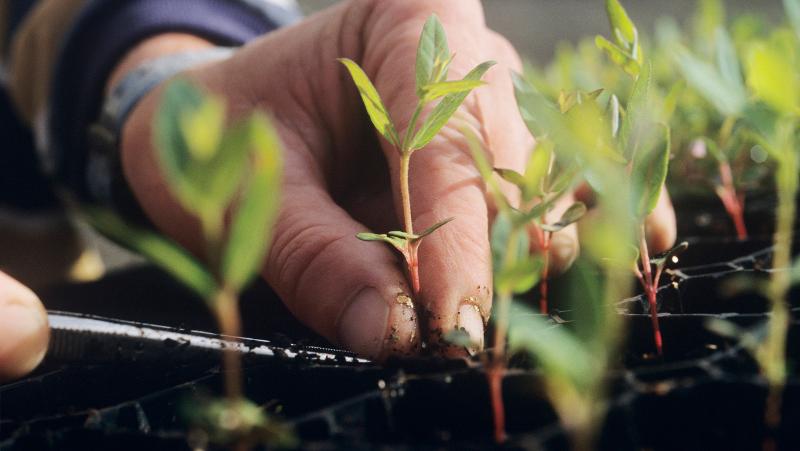
QUT researchers will play key roles in two new Australian Research Council (ARC) Centres of Excellence – one focused on improving agricultural crop resilience and yield, and the other on designing, building and scaling new biological systems for commercial application, including converting agricultural biomass.
The Federal Government last week announced $35 million funding to establish the ARC Centre of Excellence for Plant Success in Nature and Agriculture to be based at The University of Queensland, and $35 million for the new ARC Centre of Excellence in Synthetic Biology to be based at Macquarie University in Sydney.
The ARC Centre of Excellence in Synthetic Biology is a collaboration between researchers from seven Australian universities and 25 academic and industry partners from Australia, New Zealand, the UK, Europe, Asia and the United States. The Government said in its announcement that together they would provide an additional $61.1 million cash and in-kind support to the centre.
Centre researchers will investigate how synthetic biology can provide ways to enhance agriculture and manage the environment, creating systems to convert biomass from agriculture and waste streams into sustainable fuels and chemicals, environmentally friendly biodegradable pesticides, and bioplastics. The centre will also help advance therapies in personalised medicines.
QUT will be one of the centre's largest nodes with five key investigators: from QUT's Science and Engineering Faculty and Institute for Future Environments Microbial Biotechnology Professor Robert Speight; industrial biotechnology researcher and Queensland's first Biofutures Industry Envoy Professor Ian O'Hara; Inaugural CSIRO-QUT Professor of Synthetic Biology Kirill Alexandrov; and microbiologist Professor Alexander Beliaev; and from the QUT Business School, Centre for Mining Equipment, Technology and Services Business Innovation Director Professor Rachel Parker.
Amazing to be part of the @IFE_QUT @QUTSciEng node of this ARC Centre of Excellence in Synthetic Biology! Announced today! Massive opportunity and exciting collaborative times ahead @arc_gov_au #syntheticbiology #synbio @Macquarie_Uni pic.twitter.com/Y77sPelYkk
— Robert Speight (@portyrob) October 8, 2019
"Our researchers' expertise spans across different focus areas of the Centre of Excellence," Professor Speight said. "From the manipulation of microbes in the laboratory to make products, to translation of this science to industry, scaling up these technologies and identifying industrial development opportunities for Australia."
Federal Minister for Education Dan Tehan said it would be a "world-leading research centre" that would also act as an incubator for the next generation of synthetic biologists.
Five Australian universities, CSIRO and 12 other academic and industry partner organisations in Australia, Europe, Asia, the United States and Canada will collaborate in the ARC Centre of Excellence for Plant Success in Nature and Agriculture, and contribute an additional $75.2 million in cash and in-kind support to the centre.
Collaborators will address food security and climate change through identifying how plants in nature adapt to survive and thrive, and how this can be translated through use of gene editing, plant breeding and other technologies to enhance the resilience and yield of agricultural crops, such as wheat, maize, rice and corn.
Program Leader, Laureate Professor of Molecular Genetics Peter Waterhouse, and Professor in Computational Mathematics and Visiting Professor at the University of Oxford, Professor Kevin Burrage, both from QUT's Science and Engineering Faculty, are centre chief investigators.
Professor Burrage will develop mathematical network-based models calibrated to genetic data to explore how plant genetic structures might be modified to confer resilience under harsh climatic conditions, and Professor Waterhouse will lead a gene editing and industrial translation program.
"We will be looking at genes from nature's success stories and wild eco types and, with the input of the modelling, identifying which genes and networks could be better expressed or added to domestic crops to make them more resilient to harsher conditions and give farmers the best yields," Professor Waterhouse said.






